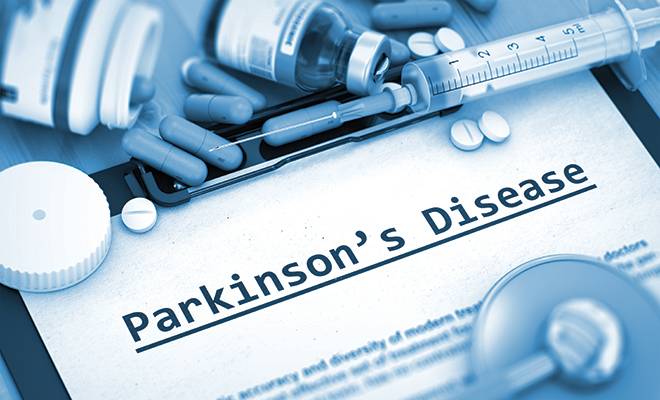
Parkinson’s Disease Awareness
Jean and her husband own a diner in the city. Jean is on her feet most of the day, cooking food, bussing tables and seating customers. During the last couple of months, Jean had felt tired and listless and started to notice shaking on her left side.
At first she didn’t pay much attention to it, and she chalked up her low energy levels to being busy at work. At the urging of her husband, Jean visited her doctor, who referred her to a neurologist. The specialist concluded she had Parkinson ’s disease.
What is Parkinson’s disease?
Parkinson’s disease, or PD, is a neurodegenerative brain disorder that progresses slowly in most people. Symptoms may take years to develop, and individuals can live for years with the disease. With PD, a person’s brain slowly stops producing the neurotransmitter dopamine. As dopamine depletes in the body, regulating movements, the body and emotions becomes very difficult for patients.
Parkinson ’s disease is not fatal, but the complications associated with it can be deadly. The Centers for Disease Control and Prevention ranks complications from PD as the 14th leading cause of death in the United States. Although there is no cure for PD, doctors treat symptoms of the disease to maintain a positive quality of life for its sufferers.
If you or a loved one has any of the symptoms listed below, it’s important that you seek evaluation by a doctor.
Tremors or shaking: Having slight shaking after exercise or an injury is normal, but tremors in fingers, thumbs, hand, chin or lips, as well as tremors in limbs that are at rest, could be a warning sign.
Soft voice: If people have asked you to repeat yourself, or if they are having a hard time hearing you, and this is a new phenomenon for you, then visiting a doctor may be a good idea. Being sick with a cold or having a virus may change your voice somewhat, but if you feel fine and your voice seems hoarse or soft, have it checked out.
Masked face: Are you often told that you look too serious? Masked face is caused when you don’t blink very often or have a blank look on your face; it may seem that you have a mad or depressed look. If you feel fine, make sure to get this checked out.
Small handwriting: Sometimes writing can change as we age, but this typically happens over a long period. If your handwriting has suddenly gotten much smaller than normal, it may be a sign of Parkinson’s known as micrographia.
Loss of smell: Having trouble smelling certain foods is often a sign of PD, especially foods such as bananas, dill pickles or licorice.
Trouble sleeping: Everybody can have a bad night, but sudden movements during sleep may be a warning. If you start to thrash around in bed or kick and punch while you are asleep, this may be a sign of PD.
Problems walking: Stiffness in your legs and arms that doesn’t go away can be a sign of Parkinson’s. Some patients feel as if their feet are “stuck to the floor,” while others complain that their arms don’t swing when they walk.
Other symptoms include ongoing constipation, stooping or hunching, fainting or feeling dizzy. A full evaluation by a doctor will generally give answers.
There is no standard for diagnosing PD, but a doctor may rule out other ailments by doing blood work and other tests. A thorough examination by a neurologist remains the first and most important diagnostic tool for patients suspected of having PD. What can you do if you or a loved one is diagnosed with PD?
• Work with your doctor as well as a neurologist, who specializes in the brain.
• Get care from an occupational therapist, physical therapist or speech therapist.
• Visit a social worker to talk about how Parkinson’s will affect your life.
• Get as much support from family and friends as possible.
• Delay further symptoms by starting a regular exercise program, and if you are already exercising, increase your workouts in time and intensity.
When it comes to exercise, look for specific programs aimed at combating Parkinson’s symptoms. Studies show that forced exercise such as boxing may slow the progress of symptoms. Some gyms offer fitness classes designed specifically for Parkinson’s patients. Boxing helps tone muscles and puts underused and rigid muscles through a full range of motion. Most of these classes combine strength and endurance training with flexibility, eye-hand coordination and power moves, which are all beneficial for lessening the symptoms of PD.
Research in the prevention and treatment of Parkinson’s disease currently focuses on the role of a protein, alpha-synuclein, as a likely culprit in causing the disease. Scientists are studying several types of drugs that would target the protein in the brain. Genetic and environmental factors are also under scrutiny as factors that may increase the risk of developing the disease. ■
Sources: parkinson.org, pdf.org and titleboxing.com.







